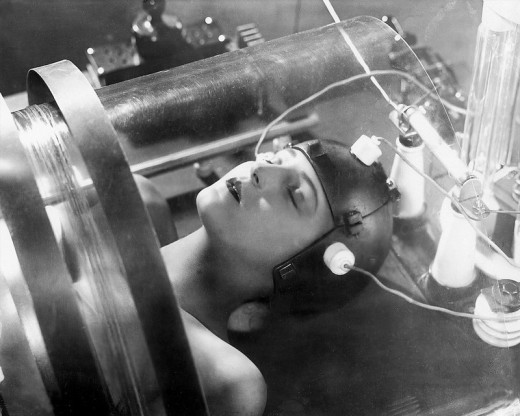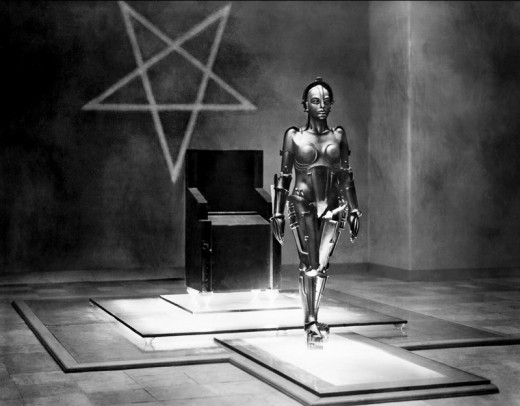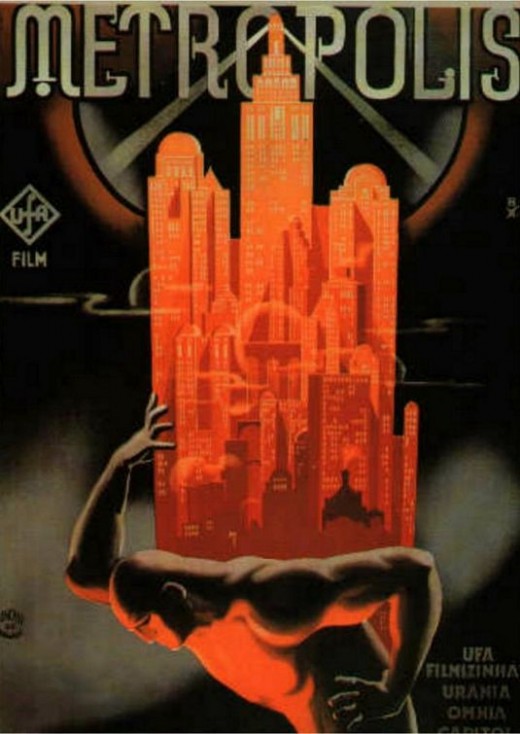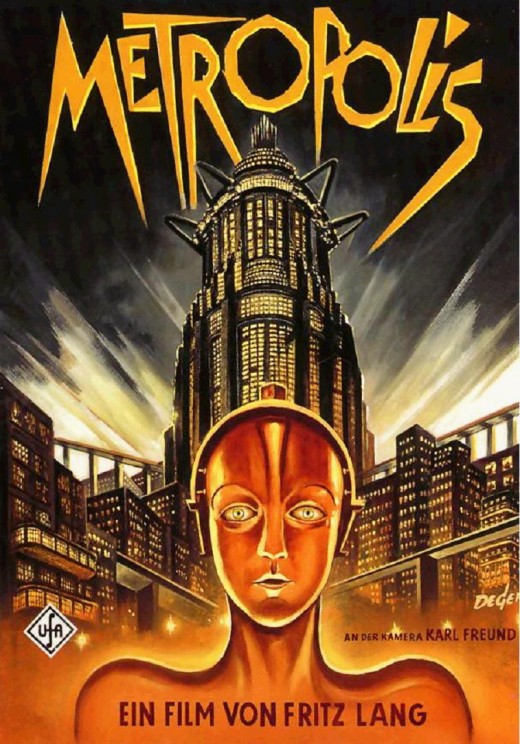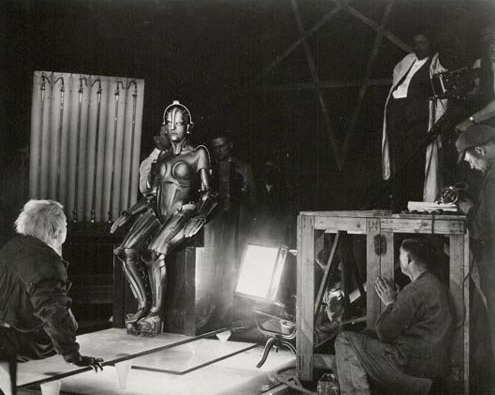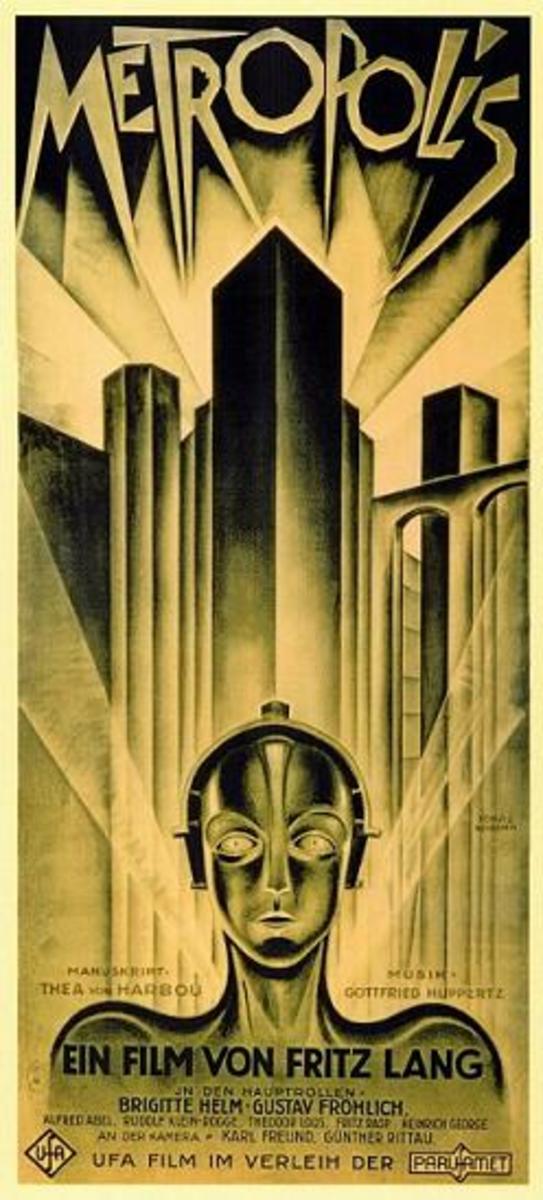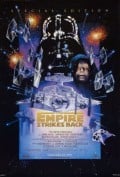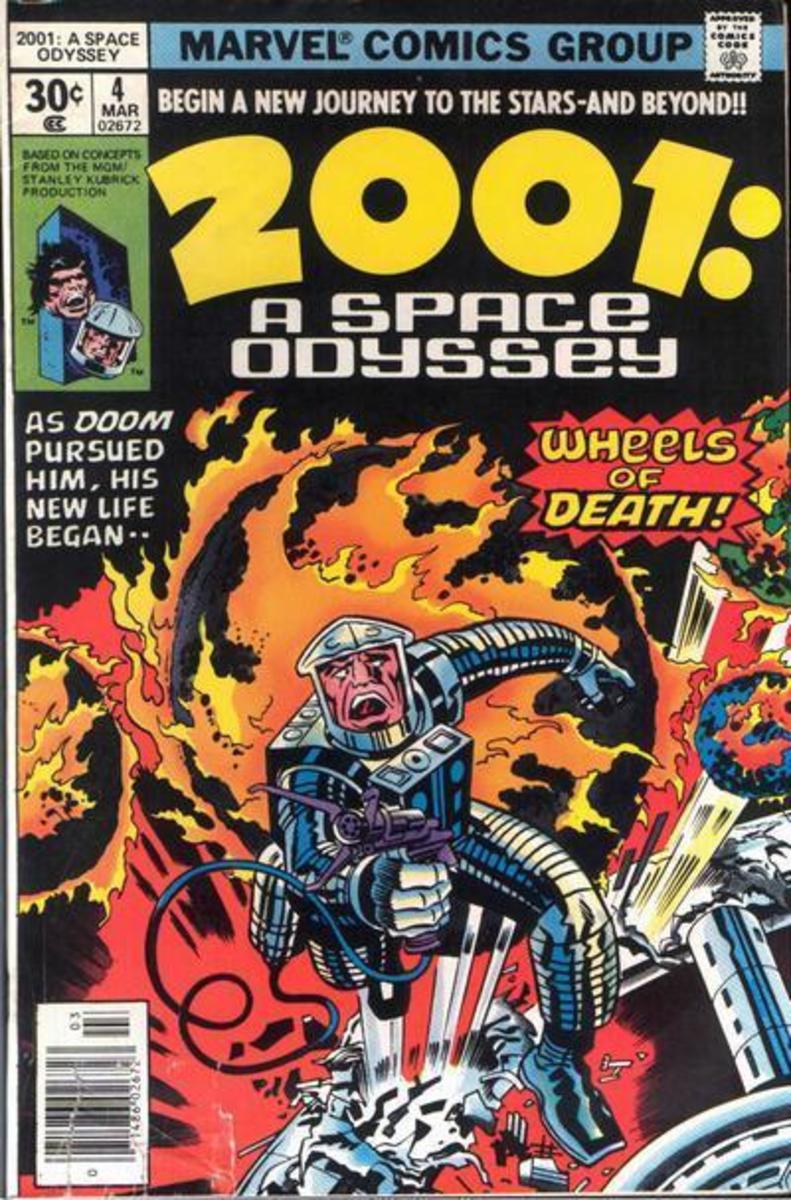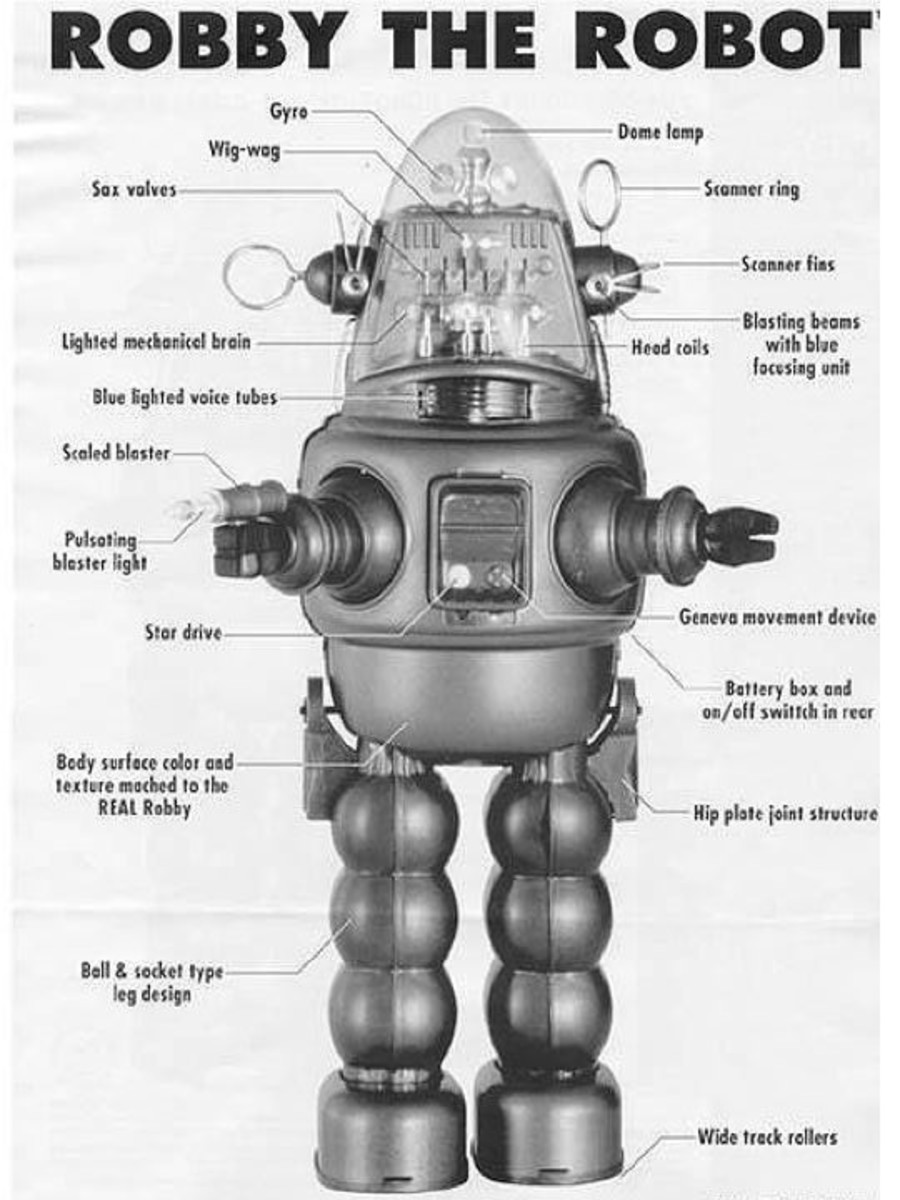Metropolis (1927) - City of the Future

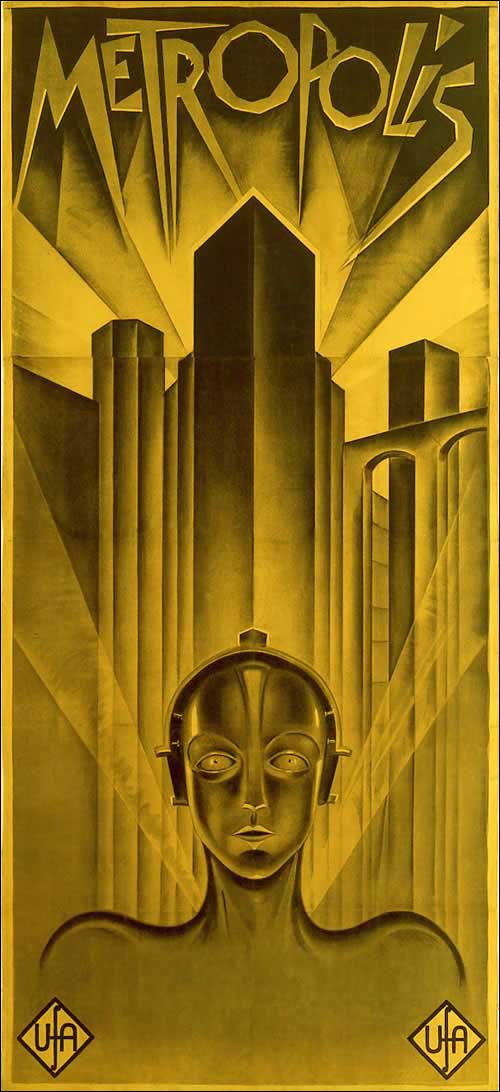
Directed by Fritz Lang, Metropolis (1927) was the first big budget science fiction movie ever made. The most expensive German movie at the time, it was not a success and it nearly bankrupted the studio, UFA.
It is somewhere near the year 2000 and in a thriving city an underclass of workers slave away at enormous, brutal machines that maintain the city itself. One of the most enduring images of this film is its opening sequence in which a team of machine operators work in perfect synchronicity with the vast engine they control. All the while the rich elite reap the benefits of the workers' efforts.
It falls to the beautiful Maria (Brigitte Helm) to maintain the peace, coercing the workers back to their tasks with inspiring speeches and calm words, and convincing them not to revolt against their masters. However, the industrialist leader (Alfred Abel) kidnaps Maria and has his scientist Rotwang (Rudolf Klein-Rogge) create a robotic duplicate of her with which to sublimate the workers. Meanwhile, the industrialist's son Freder (Gustav Froelich) has fallen in love with Maria and searches for her among the underground caverns of the workers.
After Rotwang's robot is transformed into an evil replica of Maria, the real Maria escapes, and is chased around the city by the scientist. The robot (also Helm, now looking rather wild eyed and dishevelled) sets off, against its master's intentions, inciting the workers to rebel. They promptly destroy the city, flooding the underground network of buildings and caverns in which they live and bring the industrialists' machines to a standstill.
Meanwhile Freder has rescued the real Maria and together they set about saving the work force from obliterating themselves. Eventually, all is put right as the leader of the workers shakes hands with the rich industrialist, sealing a pact of mutual respect between them.
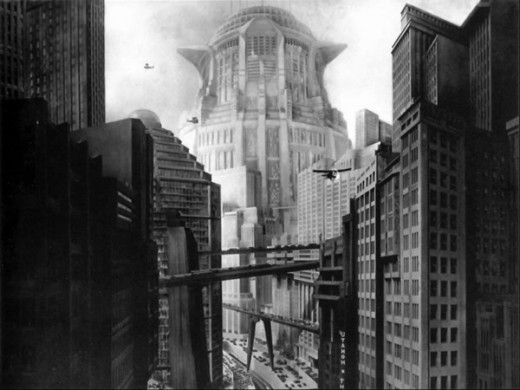
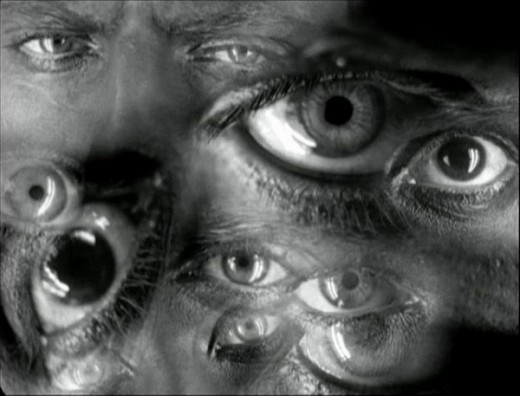
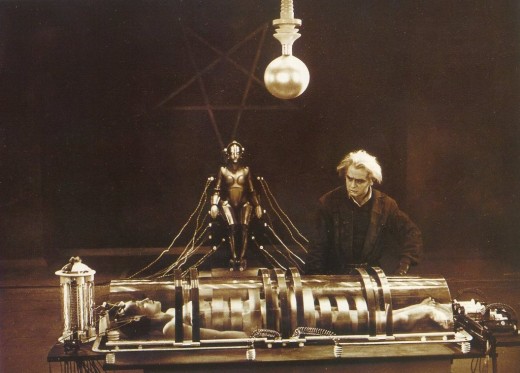
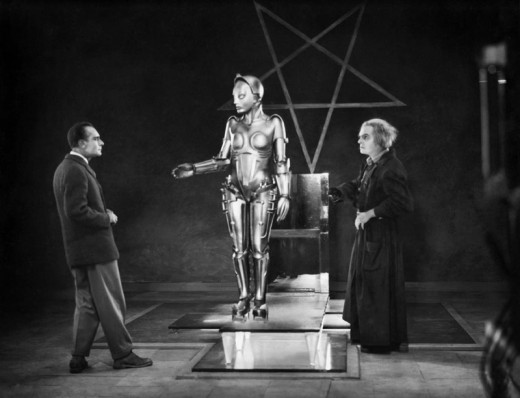
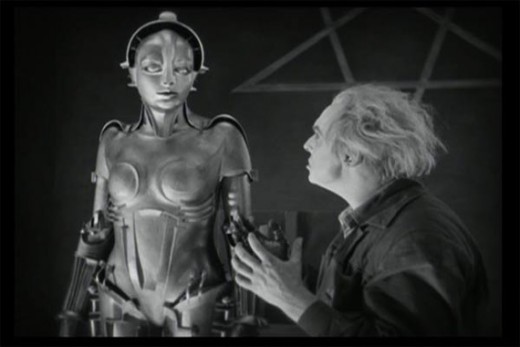
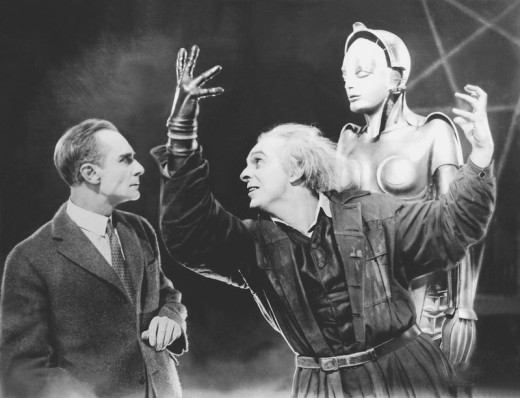

One of the most memorable scenes in the film, when Maria is transformed into a robotic version of herself, would be replicated many times in Frankenstein movies to come. Metropolis is also a political film, an early attempt to discuss the oppression of the masses and the incorrect use of technology. It is ironic that, at the beginning of the film, the workers seem more mechanistic than the robot Maria.
Klein-Rogge is wonderfully hammy as Rotwang, a neurotic genius at odds with his own abilities. His appearance would become the stereotypical mad scientist, imitated in later movies. Brigitte Helm is a marvel and she plays both the wholesome, saintly Maria and her beautiful, dishevelled doppelganger admirably. Indeed, it is not just her manner that changes, but her whole appearance - Maria's replacement is a sultry seductress that represents the antithesis of Maria.
One of the most celebrated German directors, Fritz Lang (1890-1976) had directed the epic fantasy adventure Die Nibelungen comprised of Siegfried (1924) and Kriemhild’s Revenge (1924) before taking on Metropolis. Another science fiction epic Frau im Mond (Woman in the Moon) followed in 1929. In 1931 he directed one of his most critically acclaimed films M, starring Peter Lorre as a child murderer.
He moved to Hollywood in 1936, his American movies included – Fury (1936), Return of Frank James (1940), Western Union (1941), Rancho Notorious (1952) and The Big Heat (1953). He died in California in 1976, aged 85.
Metropolis was substantially cut after its 1927 premiere, and much footage was lost over the decades. There have been several efforts to restore it, as well as discoveries of previously lost footage. In 2008, a print of the film, about 25 minutes longer than any previous surviving print was discovered in Argentina. The restored film was shown publicly for the first time simultaneously in Berlin and Frankfurt on February 12, 2010. It is now available on DVD and Blu-ray.
The special effects and set designs of Metropolis still impress 84 years later. The iconic imagery of the futuristic city and Rotwang's robot are perhaps more famous than the film itself. Metropolis is a genre-defining movie, a wonder of cinematography that remains as relevant today as it was when it was first released. It heralded the beginning of big budget SF cinema, and has had a direct and lasting impact on the genre as a whole.
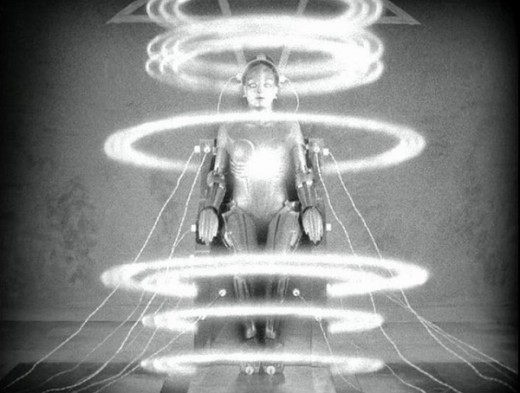
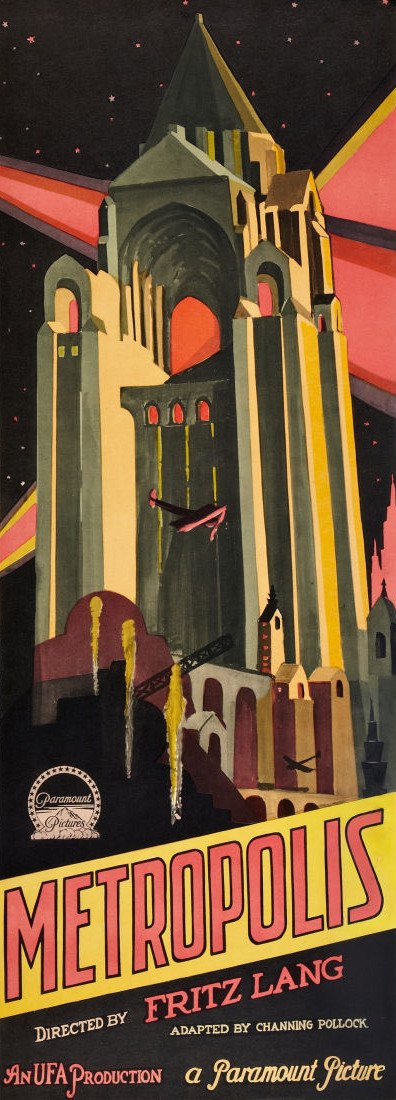
The critics wrote -
“One of the great achievements in the silent era, a work so audacious in its vision and so angry in its message that it is, if anything, more powerful today than when it was made." (Roger Ebert, Chicago Sun-Times)
“The film has a remarkable pictorial power, and, in spite of its occasional solemnities, is one which will repay study by those who are interested in the development of a separate cinematographic technique. When it imitates the stage it often fails; but, when it remains on its own territory, it proves how wide are the boundaries of that territory and how little they have hitherto been explored.” (Times)
"One of the last examples of the imaginative - but often monstrous - grandeur of the Golden Period of the German film, Metropolis is a spectacular example of Expressionist design, with moments of almost incredible beauty and power (the visionary sequence about the Tower of Babel), absurd ineptitudes (the lovesick hero in his preposterous knickerbockers), and oddities that defy analysis (the robot vamp's bizarre, lewd wink). It's a wonderful, stupefying folly." (Pauline Kael, New Yorker)
“The creation of the robot Maria is a classic sequence and one which inspired Frankenstein and subsequent monster movies, and the film remains one of the great examples of German expressionism.” (Alan Frank)
